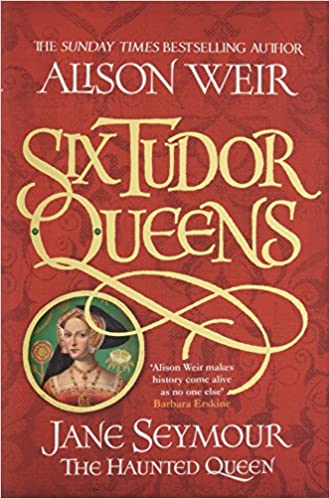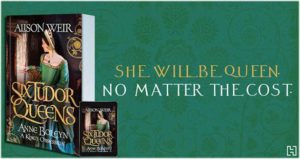
Let’s be honest: lockdown sucks! But it does mean there’s more time for reading. Over the next couple of weeks, I will review 10 books which all Royal History Geeks should add to their reading list.
The heart of Katherine of Aragon emanates from her surviving letters. Everybody has an opinion about Anne Boleyn. But Jane Seymour, the third wife of Henry VIII, is a more elusive figure.
One of her brothers would become a major political player. Another would gain a reputation as a scoundrel. Her son would oversee sweeping religious reforms. But what do we truly know of the woman herself?
Combining her gifts of imagination and empathy with innovative new research, Alison Weir gives us a glimpse of the answer. In the third of Weir’s historical novels on the wives of Henry VIII, Jane steps forward as a kind, nurturing woman who was not afraid to go for what she wanted when she believed it was right.
As the book begins, we meet a young Jane growing up at Wolf Hall. As a girl, she ponders a career as a nun. But then her tranquil life is disrupted by the revelation of a scandal.
Jane ultimately decides to pursue the path of court service and the hope of an honourable marriage. During her time in the Queen’s household, Jane grows in devotion to Katherine of Aragon. She forms a loyalty to her and her daughter Mary that will last a lifetime.
This loyalty to Katherine is intuitively used to explain Jane’s motivation as the book progresses. It makes it credible that the usually demure and chaste Jane eventually seizes her opportunity with the King. It makes it believable that such a kind-hearted woman could act as an accomplice to the downfall of Anne Boleyn. It also helps explain her determination to see the Lady Mary restored to favour.
But Weir’s Jane is not a two-dimensional character. She feels guilt around her role in Anne’s demise. The late Queen may have departed the mortal coil, but as the book’s title suggests, she never quite leaves Jane’s thoughts.
As the book ends, Weir experiments with some new theories on the nature of the illness that caused Jane’s tragic and premature death. While I can’t relate to this personally, it’s clear from the reaction to the book that this has deeply touched a number of women who have themselves been through a difficult childbirth. The book may be based on characters who lived 500 years ago. But it touches the hearts of people today.
The book is written in a flowing, legato style. Happily, it is heavy on dialogue. As with all Alison Weir fiction books, it features an author’s note that sets out what is historical fact, what is imagined and what is invented. As a true Royal History Geek, my only complaint is that I wish the note were 10 times longer. But fear note fanatics: the author has teased that an updated version of her 1991 ‘Six Wives’ factual epic may hit shelves in the future.
Historical fiction will always divide opinion. When an author pens a fictional account, it is free from footnotes, source criticism and histography. They must choose a path to the exclusion of all others. Not everyone will agree with Weir’s interpretation.
But even those that don’t are likely to recognise ‘The Haunted Queen’ as an example of historical fiction at its best. It opens a door to the past and offers us a moment of escape. But it also helps us to realise that while the setting, culture and expectations are different, the trials of humanity are common to all of us. Factual history helps us to understand our forebears. Historical fiction gives us a chance to share their humanity.
Six Tudor Queens: Jane Seymour – The Haunted Queen is available from Amazon.
However, please consider supporting your local book seller. If you are based in the UK, search for your local book seller at the Book Seller Associations website.
Subscribe to our newsletter!







